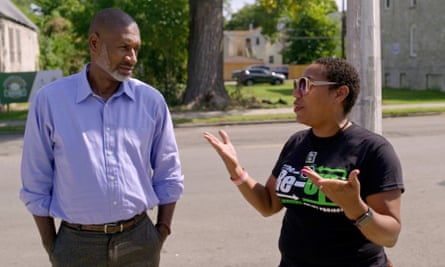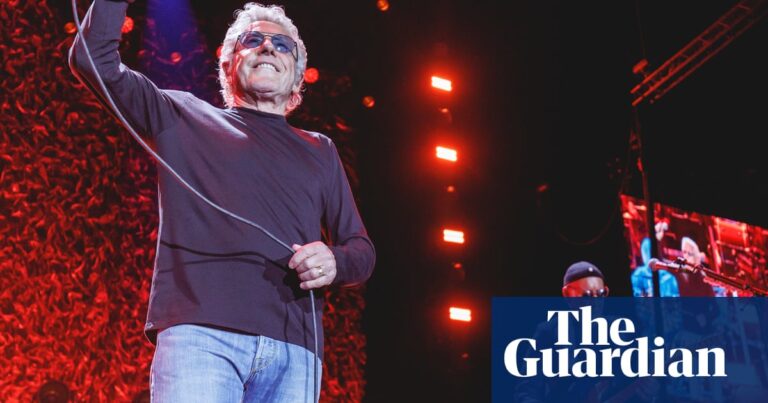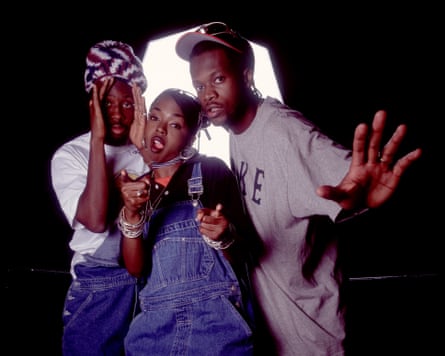Between 1915 and 1970, approximately 6 million Black Americans relocated from the southern United States to escape discrimination and racial attacks under Jim Crow laws. They sought better opportunities in the northern and western regions of the country.
After fifty years, Charles Blow, a columnist and author for the New York Times, believes that the time has come for Black Americans and their descendants to come back.
In his latest publication, “The Devil You Know: A Black Power Manifesto,” Blow asserted that the key to Black Americans overcoming white supremacy and creating meaningful societal change lies in obtaining political power. He proposed that this could be achieved by relocating to the southern region of the United States and strategically focusing their voting power in major southern cities with significant Black populations, ultimately gaining political dominance in select states.
The HBO documentary “South to Black Power” continues the story told in Blow’s book, focusing on the reverse migration that has taken place. It features interviews with historians, activists, and local politicians who have returned to the South, some of whom have achieved success in community organizing while others continue to struggle against a flawed system.
“Since the initial arrival of enslaved Africans on the land that would eventually become the United States, the majority of Black individuals have resided in the southern region of the country. In a recent interview with the Guardian, Blow expressed that even today, although the majority is only slightly so, this is still where the Black community predominantly resides. He acknowledges the immense amount of labor and sacrifice that went into developing the infrastructure of the American south, and encourages Black individuals to reclaim the benefits of their ancestors’ work.”
Blow, who relocated to Atlanta after living in New York for twenty years, emphasizes in the documentary that he is not aiming for a Black paradise. He states, “There are no Wakandas.” His proposal is simply that Black individuals should have more control over their governance. While some major cities in the south with a predominantly Black population have made progress in creating safe and prosperous communities for Black people, they are limited by the influence of conservative white leaders in the rest of the region. For instance, the water crisis in Jackson, Mississippi, which left hundreds of thousands without access to clean drinking water, was a result of neglect from the mainly white state legislature. Blow explains, “Had there been a state government in Mississippi that actually listened to and supported Black people rather than being hostile towards them, this crisis would not have occurred.”
Blow’s suggestion has historical support. In the 1970s, a group of students from Yale Law School proposed the idea of taking control of a state. This idea gained traction when a writer for Playboy suggested Vermont, a traditionally conservative state, as a potential testing ground. By 1980, Vermont’s population had grown by 65,000, the largest increase since the period following the American Revolutionary War. This influx of people also brought about a shift in political ideologies. As Blow stated, “They successfully transformed one of the most conservative states into one of the most liberal in America, with Barack Obama receiving his highest percentage of the white vote in 2008.”
Blow rejected the belief that racism is more severe in the southern United States. While the history of the region may be filled with anti-Black discrimination, Black individuals have faced racial violence across the entire country, not just in the south. He pointed out that many of the cities where Black men were killed were popular destinations for Black individuals during the first wave of the Great Migration from the south. According to Blow, racism is not limited to one specific region.
Upon going back to the southern region, African Americans have the opportunity to reconnect with their ancestry that they had to abandon when they escaped many years ago.
According to Blow, the majority of Black individuals have resided in the southern United States for such a significant amount of time that our culture has become intertwined with southern American culture. The food and music of the south have been heavily shaped by Black and enslaved individuals. When I am in this environment, I am reminded of familiar sensory experiences that are a part of my identity. There is a sense of belonging that may be difficult to express in words, but is felt because it is a part of who we are.

The documentary delves into Blow’s personal life, as he visits his family home in rural Louisiana and reconnects with cousins who have never left the southern region. During a discussion with his family, one of the challenges of Blow’s proposal is brought to light – the perception of limited opportunities. As one cousin stated, there is a common belief that if you work at the local mill, your children will automatically follow in your footsteps. This can make it difficult to break out of this cycle. Blow himself acknowledges that he left the south in pursuit of more opportunities. In a later conversation with his former boss, Dean Baquet, at the New York Times, it is pointed out that Baquet would not have achieved the position of executive editor if he had not left New Orleans.
According to Blow, there are opportunities available for Black individuals in the southern regions. In 2018, Forbes published a list of cities where Black individuals have achieved economic success, with several southern cities making the cut. Blow clarifies that he is not discouraging people from pursuing career growth or success in larger northern and western cities. He suggests that if someone is already thriving in their work and feels safe and secure with their family, they may have already found their ideal community.
Blow stated that while this may be true for some individuals, there are also many who cannot purchase a home, attend inadequate schools, and face fear from the legal and policing systems. They may feel trapped in a never-ending cycle of despair. For those people, Blow urges them to remember that they have a choice and can break free from these circumstances. He encourages individuals to carefully examine their options when searching for opportunities and to take into account the potential opportunities when deciding where to live.
Blow stated that there are certain aspects in life that hold more importance than oneself. When making decisions about how to live and the choices to be made, it is necessary to consider the success of the community.
-
South to Black Power will air on HBO on 28 November with a UK date to be announced
Source: theguardian.com



















